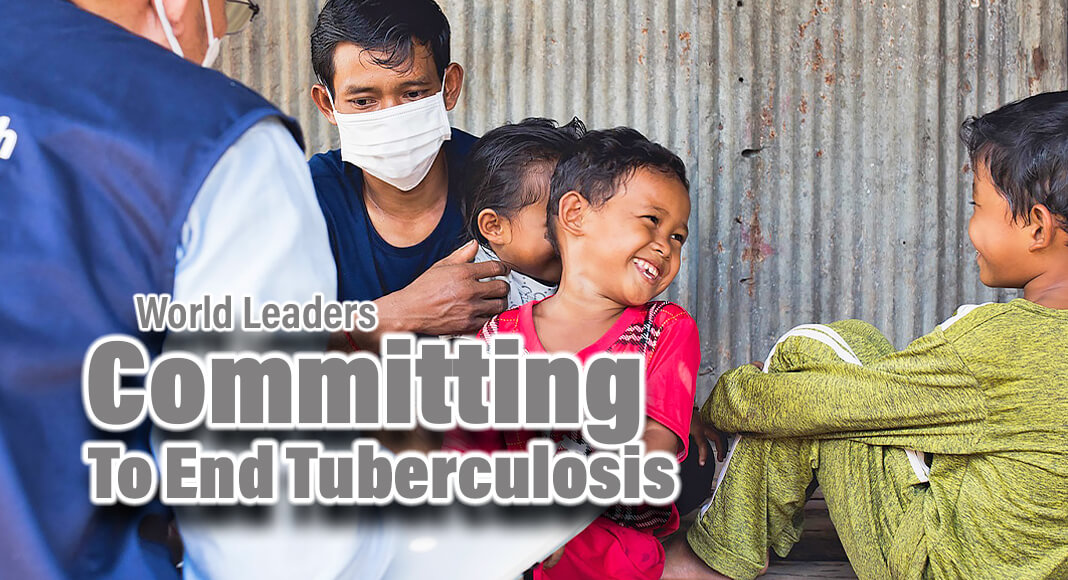
Mega Doctor News
World leaders at the United Nations General Assembly’s High-Level Meeting on Tuberculosis have approved a Political Declaration with ambitious new targets for the next five years to advance the global efforts towards ending the TB epidemic.
The targets include reaching 90% of people with TB prevention and care services, using a WHO-recommended rapid test as the first method of diagnosing TB; providing social benefit packages to all people with TB; licensing at least one new TB vaccine; and closing funding gaps for TB implementation and research by 2027.
“For millennia, our ancestors have suffered and died with tuberculosis, without knowing what it was, what caused it, or how to stop it,” said Dr Tedros Adhanom Ghebreyesus. “Today, we have knowledge and tools they could only have dreamed of. The political declaration countries approved today, and the targets they have set, are a commitment to use those tools, and develop new ones, to write the final chapter in the story of TB.”
Progress made towards 2018 targets
Taking stock of progress towards targets set in 2018 for a five-year period, WHO reported that while global efforts to combat TB have saved over 75 million lives since the year 2000, they fell short of reaching the targets, mainly due to severe disruptions to TB services caused by the COVID-19 pandemic and ongoing conflicts. Only 34 million people of the intended 40 million people with TB were reached with treatment between 2018 and 2022. For TB preventive treatment, the situation was even more grim, with only 15.5 million of the 30 million people targeted to be reached with preventive treatment accessing it.

Funding for TB services in low- and middle-income countries fell from US$ 6.4 billion in 2018 to US$ 5.8 billion in in 2022, representing a 50% financing gap in implementing the required TB programmes. Annual funding for TB research ranged from US$ 0.9 billion to US$ 1.0 billion between 2018 and 2022, which is just half of the target set in 2018.
This has placed an even heavier burden on those affected, especially the most vulnerable. Today, TB remains one of the world’s top infectious killers: annually more than 10 million people fall sick, and over 1 million lose their lives to this preventable and curable disease. Drug-resistant TB continues to be a major contributor to antimicrobial resistance with close to half a million people developing drug-resistant TB every year.
“Uniting around the TB response by world leaders, for a second time, provides an opportunity to accelerate action and strengthen health systems capable of not only addressing the TB epidemic, but also protecting the broader health and well‑being of communities, strengthening pandemic preparedness and building on lessons learnt during the COVID-19 pandemic,” said Dr Tereza Kasaeva, Director of the WHO Global TB Programme. “Averting TB-related financial hardship and preventing the development of the disease in vulnerable groups will help diminish inequities within and between countries, contributing to the achievement of the Sustainable Development Goals.”
TB incidence and deaths have risen between 2020 and 2021 but coordinated efforts by countries, WHO and partners are resulting in a recovery of essential services.
Launch of the TB vaccine accelerator council
In the lead-up to this historic meeting, WHO Director-General, Dr Tedros Adhanom Ghebreyesus, officially launched the TB vaccine accelerator council to facilitate the development, licensing and use of new TB vaccines. The Council, supported by the WHO secretariat, will be led by a ministerial board, consisting of nine members who will serve on a rotating basis, for a term of two years. The Council will also have subsidiary bodies to support its interaction and engagement with different sectors and stakeholders broadly, including the private sector, scientists, philanthropy, and civil society.
BCG is currently the only licensed TB vaccine. While it provides moderate efficacy in preventing severe forms of TB in infants and young children, it does not adequately protect adolescents and adults, who account for the majority (>90%) of TB transmission globally.
The Council aims to identify innovative sustainable financing, market solutions and partnerships across public, private, and philanthropic sectors. It will leverage platforms like the African Union, Association of Southeast Asian Nations (ASEAN), BRICS countries (Brazil, Russian Federation, India, China and South Africa), G20, G7 and others to strengthen commitment and actions for novel TB vaccine development and access.
World leaders commit to new targets to end TB. New York, US: World Health Organization; 2023. License: CC BY-NC-SA 3.0 IGO.










